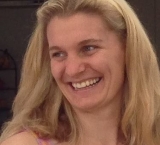Hack:
Discover Your Purpose, For Deeper Personal Resilience
This week I had a client hit me up with something big: “how do you define purpose, I mean, at what point do you just call it quits and realise it isn’t there or you don’t know what it is?”
He was really seeking to take a deeper look at himself, his business, and whether it still fits, needs tweaking, or maybe a big change? It seemed he was at a crossroads - tired, feeling low and a little overwhelmed with life. Exhausted, he’d reached out to dig down. He wasn’t sure where he needed to start, but sensed there might have been a big decision coming for some time now.
Dan Pink lists three key principles in motivating ourselves and our people: Autonomy, Mastery and Purpose. Diane Coutu identifies that finding meaning in our work is an essential building block for how resilience works.
If we’re able to understand our own personal purpose, and we have clarity on our organisation’s purpose, then lining those two things up has a huge boost to productivity, collective understanding and team performance. It means we have the persistence to keep going when things are tough and the good sense to know when to put gas back in the tank.
So how do we find meaning? Where do we start if we have no idea?
Here’s two activities that might help: One active and one passive reflection.
1. Discover your “homebase”
Full credit has to go to a colleague for this one: Grant Symons showed me this technique and I immediately fell in love with it.
Take an A4 sheet of paper and divide into 4 sections.
In each space take some time to journal out your passion, the things that make you special, the impact of your efforts and what you want to be known for. This also works great as an activity for the whole team if you add some share-time on the end.
2. The three questions meditation
This one was gifted to me by one of my first and most beautiful yoga teachers, Gabrielle Boswell.
Find a quiet place to sit, get comfy, close your eyes.
Ask each of the three questions one at a time. Give yourself a pause between each, time to allow answers to come up and hold the space for just a little longer than you’re comfortable with before you ask the next question. The whole meditation can take from 20 - 60 minutes.
-
Who am I?
-
What do I want?
-
What is my purpose (dharma)
Take time to really listen - answers may come as words, images or sensations. Try not to get too attached, but simply stay soft and open to what arises, and then let it pass. This meditation works best when you repeat over time - I had some great insights over a 6 month period with roughly weekly iterations.
We teach both of these activities on-retreat and deliberately choose the combination of active reflection and a more passive approach to get some well rounded insights. I hope you find these two activities useful :)
- D.
Grant Symons - grantsymons.com
Gabrielle Boswell - buddhimind.com
Know thyself and to that self be true. It took me years in management to realize that I must define my philosophy and to give this to my employees. This was my commitment to them. This made my team realize that commitment was two-way; me to them and them to me, and both of us to our company mission. I have explained this process in my book, "The First-Line Manager."
- Log in to post comments




You need to register in order to submit a comment.